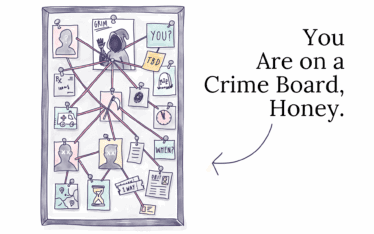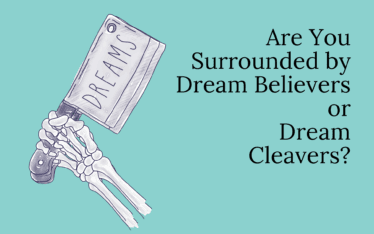“Trooper Douglas Dolan is lucky to be alive” was the lead-in to a news article which went on to explain DJ Dolan’s ordeal while apprehending a routine motor vehicle stop gone awry. More than awry: DJ was dragged by the suspect’s vehicle, assaulted after he hoisted himself up and into the car (total Tom Cruise movie material), and almost shot by the assailant who reached for a loaded handgun in the minivan. “Also in the vehicle were a black face mask, 13 bags of cocaine, four bags of heroin, three bags of marijuana and a collection of what authorities describe as burglary tools.” This wasn’t a random tangle with death for DJ; this was a typical day at the office.
I should back up for a moment. As a trainer in the Penn Resilience Program, I get to work with a variety of organizations—like law enforcement agencies—helping “train the trainers” to arm their teams with more resilient stress responses. It’s rewarding work.
DJ Dolan was a participant in the program in 2021, while he was employed as a detective with the Massachusetts violent fugitive apprehension section, attached to the US Marshals fugitive task force. DJ’s team covered one of the highest crime areas in Massachusetts, responsible for about 1000 total violent fugitive arrests—for murder, rape, and other heinous crimes.
“I came close to death so many times with my work in state and federal service—being shot at, dragged by cars, armed foot chases, you name it. Those moments made me appreciate life, one hundred percent. In the debriefing you realize just how precious your life is.”
DJ’s perspective on mortality shifted over time. “When I started having kids, that’s it—I was like alright, if that guy got the shot off and killed me, now it’s not just me.”
I was curious if his near fatalities impacted the way he showed up in the rest of his life, when he wasn’t hunting down violent fugitives. DJ came up with a practice he called the “shift change visualization,” a conscious decompression that helped him be more present when he was home.
The Shift Change Visualization
“I’d go serve a murder warrant at three in the morning, breaking the door down, doing what needed to be done with my team, then debriefing the mission . . . and then I’d be getting in the car driving home. My nervous system would be through the roof. And then I was supposed to try to be a dad and husband? How could I do that?”
“I would always think, and this is where it ties in nicely with your work, is if I get taken out in five years, right? If I don’t make it, whatever happens, I want to control how my kids view me coming through the door. I have an opportunity every day for a first impression. And so I want to maximize that. I would think, okay, from my daughter’s eyes, who was like a foot tall at the time, looking up at me, I visualized from her eyes how I wanted her to see me coming through the door. And then I wouldn’t go in until I could try to get that right.” He would practice mindful breathing techniques and visualize the best dad/ husband version of himself before greeting his family.
DJ noted how different this was from the usual routine of charging through the door with a “just give me 10 minutes, I’m gonna put my gun away and wind down” . . . which inevitably led to missed moments, because no one cared to see him 10 minutes later.
“Realizing that I couldn’t control—especially in that line of work—the quantity of time with my family, I could definitely control the quality of it. The shift change visualization for me was using death as a motivator of, if I am taken out, how will my kids remember me? I wanted to show up every day with the smile and the present energy and the hugs and the calmness.”
Not all of our jobs provide stark reminders of our impermanence (p h e w), but we can learn from DJ’s perspective that life is too short to let meaningful moments of connection pass us by. Are you mindful of your daily first impressions with the people you care deeply about? Is there a version of a “shift change visualization” that might help you be more present, even if you live alone?
Are you present, even reading this? How can you tune into your five senses to be more mindful of now? You get to be here, you get to be alive! You have not been dragged-almost-to-death by a minivan full of everything true crime shows are made of. So take a breath. Thank whomever you’d like that you get to have a pulse. Choose how you’d like to handle the next hour of your life, then go live that way.
Make an intentional first impression with the people in your life, every single day . . . including yourself.

P.S.: Let’s Instagram!
P.P.S.: Oh and just in case you missed it… I’d love you forever if you took 16 minutes out of your life to watch my TEDx talk!






